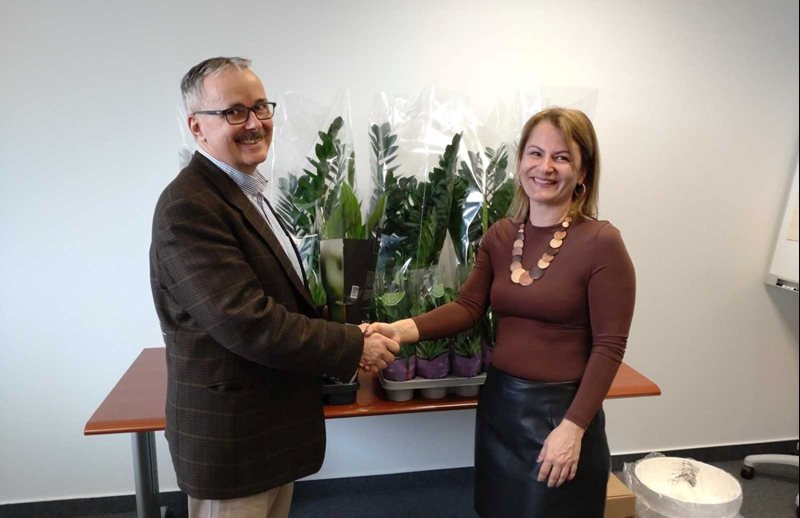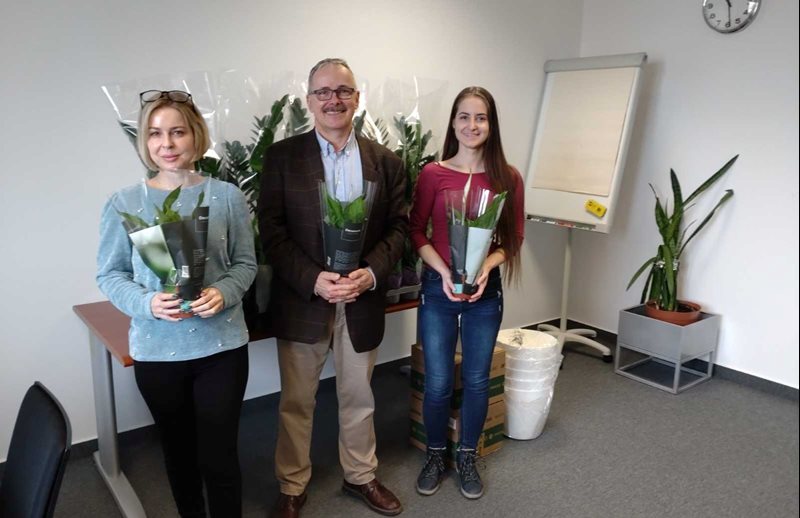Plants for offices handing in their bins, you can still join in
_20240306153407_0.jpg)
35 percent of university staff have joined an initiative in which departments can voluntarily return office bins to the university and use the recycling containers instead. The first offices have already received the plants, and deliveries will continue over the coming weeks.
Heads of departments can still join the initiative. This is also the last of the three-raven challenge for colleagues, the first was to cancel plastic-bottled water orders and the second was to optimise household appliances.
Those who complete all three challenges will be able to organise a community-building programme for themselves from the central budget. Everyone has joined the first challenge, and for the second applications are still available.

How to care for your plants
The plants have been selected to withstand the office environment and require less care, as watering will be the responsibility of the colleagues, following the practice of the previous years. Exceptions are periods when the buildings are closed for, in which case the employees of the cleaning service will do the watering on a weekly basis.
Two types of office plants have been ordered: the Peace lily (Spathiphyllum wallisii) and the Emerald palm, also known as Zamioculcas (Zamioculcas zamiifolia).
The native habitat of the Peace lily is the tropical regions of America, and in Europe it is most commonly used in office environments. It prefers a bright to semi-shaded location near a window, but continuous direct sunlight can scorch its leaves. It has a medium water requirement and overwatering should be avoided as it can cause root rot. More details here.
The Zamioculcas, or more commonly known as the Emerald palm, is native to Africa, but is often used in offices, staircases and homes. It tolerates a wide range of light conditions and grows best in bright but not scorching sun. Strong sunlight can burn its leaves, and it doesn’t like cold and draughts. It tolerates drought well but is sensitive to overwatering, so watering should be infrequent. It is enough when the soil has dried out completely, and stagnant water should be avoided. More details here.

Positive experiences for sustainability
In the Corvinus Green project, our goal is to reduce the ecological footprint of the university while maintaining a sense of comfort and balance between the two. And to compensate for any loss of comfort resulting from the change, we aim to provide some positive experience in return for volunteering.
For example, we have rewarded colleagues for optimising their household appliances with fair trade coffee beans, and for turning in their bins with plants that contribute to the cosiness of the office and improve well-being. And departments that complete the three-raven challenge can organise a team-building programme for themselves, linking positive community experiences to sustainability efforts.
We are also looking to implement new actions in the future and to involve colleagues and students in the process. More comprehensive project ideas are encouraged via the ERS Hub platform and proposals specifically related to the functioning of the university infrastructure are welcomed at corvinusgreen@uni-corvinus.hu.
Corvinus University of Budapest is committed to supporting community sustainability activities and to working towards more sustainable operations, as collective action is needed to achieve significant change.